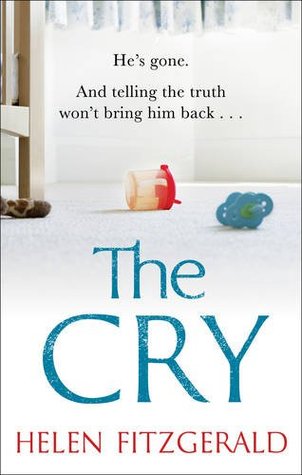Title: Death of the Demon
Author: Anne Holt
Publisher: Scribner
Read: September 02-05, 2013
Read a free chapter (click here) - courtesy of The Reading Room
Synopsis (Goodreads):
In an orphanage outside Oslo, a 12-year-old boy is causing havoc. When the institution's director, Agnes Vestavik, is found murdered at her desk, stabbed in the neck with a kitchen knife – with Olav nowhere to be found – the case goes to Hanne Wilhelmsen, who has been recently promoted to superintendent. Hanne suspects that Olav witnessed the murder and fled, but this is one case where her instincts are leading her astray.
A dark and captivating thriller, Death Of The Demon examines the murky intersection between crime and justice.
My thoughts:
After having been a fan of Scandinavian fiction for some
time, I was very surprised that I have never before come across a novel by Anne
Holt, who is being described as the “godmother of modern Norwegian crime
fiction” by none other than Jo Nesbo, one of my favourite Scandinavian crime
writers. Perhaps it has been the English sounding name which had thrown me –
but now that I have discovered Holt’s work, it won’t be the last time I will
pick up one of her novels.
The book opens with Olav, a troubled twelve-year-old boy,
making his entrance into life in a foster home for problem children just
outside Oslo. From the first day it becomes obvious that Olav has behavioural
problems – and that he carries a deep-seated anger and hatred belying his young
years. After an altercation with the foster home’s director, Anne Vestavik,
Olav disappears, and Anne is found dead in her study, stabbed in the back with
a kitchen knife. It is Hanne Wilhelmsen recently promoted to chief inspector in
the Oslo police department, who is being sent to lead the murder investigation.
Despite claims that Olav could have something to do with Anne’s death, Hanne is
reluctant to believe those rumours – he is, after all, a young boy, surely not
capable of such a heinous and cold-blooded crime. On top of the roadblocks in
the investigation, Hanne struggles with her new role, being used to doing the
detective work herself rather than delegating and leading her team. With very
few leads to go on, this case may be one to challenge Hanne’s usually impeccable
instincts ….
Death of the Demon has the feel of an old-fashioned
whodunit. With a small cast of characters, each one flawed in some way, the
story slowly reveals clues and peels back the layers of each character’s
personality to reveal a possible motive for murder. I have seen Holt’s work
being compared to Agatha Christie’s work in some reviews, and in some ways the
comparison fits – the focus lying on interpersonal relationships and good old
fashioned detective work. With such a small arena, there are few heart-stopping
I-never-saw-this-coming moments, though the red herrings in the investigation
manage to keep the reader interested to find out whether the gardener indeed
did it or not. As with other Scandinavian fiction of the genre, Holt manages to
intersperse crime fiction with a satirical look at modern society, where
twelve-year-olds are sent into foster care because of unfit home environments.
Whilst enjoying reading a well-plotted whodunit, my overall
feelings of Holt’s latest work are divided. Firstly, I found it hard to warm to
any of the characters (in fact finding the majority of them downright
unlikeable), apart from Billie T, who was like a breath of fresh air in the
stiflingly dark atmosphere of the story. And whilst the dark atmosphere of the
Scandinavian noir genre is the one thing that usually appeals to me, in this
case it weighed me down a little. Well plotted and expertly crafted – tick.
Enjoyable – I’m not so sure. There are scenes, such as Olav sitting in a
stranger’s house and peeling wallpaper of the wall, which are downright
depressing and left some very disturbing images in my mind. However, with the
solid foundation of a well-crafted plot, the novel should appeal to
Scandinavian crime fiction fans. I am intrigued by Holt’s writing, and will
make sure to look up some of her other work.
Thank you to the Reading Room and the publisher for
providing me with a free copy of this novel in exchange for an honest review.
